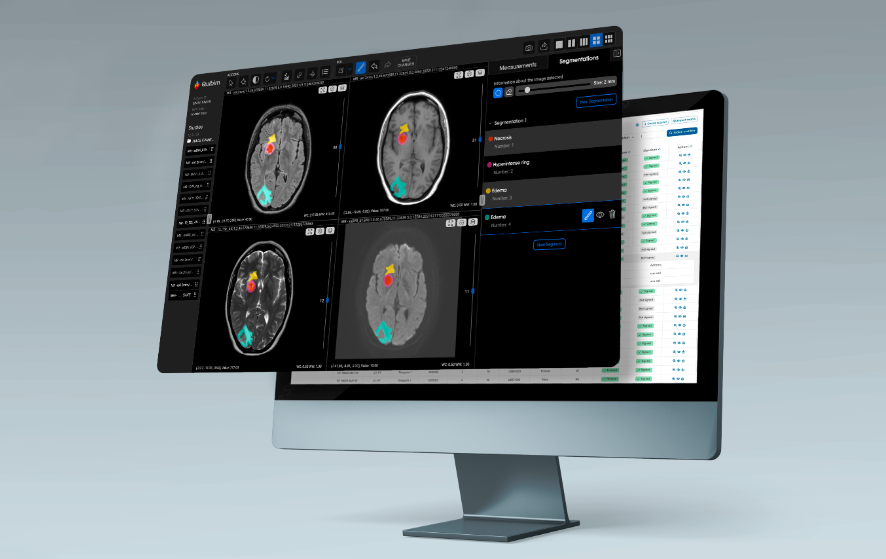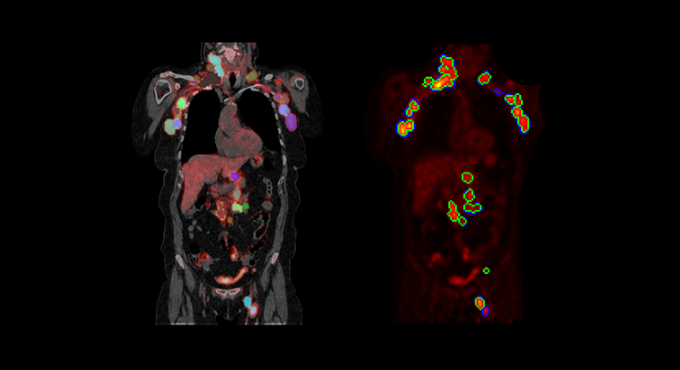 AI
AI
 AI
AI
 AI
AI
A Spanish artificial intelligence startup called Quibim S.L. said today it has closed on a $50 million early-stage funding round to help accelerate the development of its foundational models for medical imaging.
Today’s Series A round was led by Asabys, a leading venture capital firm based in Spain, and the private equity firm Buenavista. Others, including Amadeus Capital Partners, Apex Ventures and Partech, also invested in the round, as did the iPod and iPhone co-creator Tony Fadell.
Quibim is developing AI-powered medical imaging technology that spans oncology, neurology, immunology and metabolic disorders. The startup says there’s enormous potential for AI models to speed up and improve the accuracy of disease detection by scanning the images obtained from computed tomography scans, magnetic resonance imaging and X-rays.
That’s the main purpose of its flagship product, QP-Prostate, which is a solution targeted at prostate cancer detection. The company has also built other products for detecting disease in the brain, liver and lungs, as well as breast cancer.
Another tool it has built is called QP-Insights, which it explains is used to process multi-omics data, or different kinds of biological information that’s obtained from clinical trials and other research programs.
Quibim co-founder and Chief Executive Angel Alberich-Bayarri said the startup’s main mission is to use medical imaging as a catalyst for “precision health” that will revolutionize diagnostic processes and improve patient outcomes.

Besides creating an array of products for detecting different medical problems, the company has a longer-term plan to create “digital twins” of humans that can aid in research. It says its digital twins will act as “dynamic models” that can be used by medical researchers to better understand the human body, how it responds to different treatments and so on — a kind of simulation of the human body that can be used for experimentation, in other words.
With today’s round, Quibim’s total funding now stands at $70 million, and it’s now targeting an expansion into U.S. markets. The QP-Prostate tool received clearance from the Federal Drug Administration back in 2023 and it recently hired a U.S.-based chief medical officer, so it’s well-set to do this.
The company has already made some progress in the U.S., as well as in Europe. Its products are used at more than 170 hospitals and research centers globally, including Stanford University and the Harvard University-affiliated Mass General Brigham Inc. healthcare system. In addition, the company has also partnered with the medical device manufacturer Koninklijke Philips N.V. to incorporate its AI models in that company’s medical imaging devices.
Today’s round highlights the strong momentum of AI startups that are looking to transform almost every aspect of the healthcare industry. Quibim isn’t alone in bringing AI to medical imaging, where it’s rivaled by competitors such as Aidoc Medical Ltd. Another AI imaging company, VideaHealth Inc., is employing similar technology to aid dentists.
AI is also making its presence felt in areas such as drug discovery, behavioral healthcare and document processing, among other use cases.
Support our mission to keep content open and free by engaging with theCUBE community. Join theCUBE’s Alumni Trust Network, where technology leaders connect, share intelligence and create opportunities.
Founded by tech visionaries John Furrier and Dave Vellante, SiliconANGLE Media has built a dynamic ecosystem of industry-leading digital media brands that reach 15+ million elite tech professionals. Our new proprietary theCUBE AI Video Cloud is breaking ground in audience interaction, leveraging theCUBEai.com neural network to help technology companies make data-driven decisions and stay at the forefront of industry conversations.